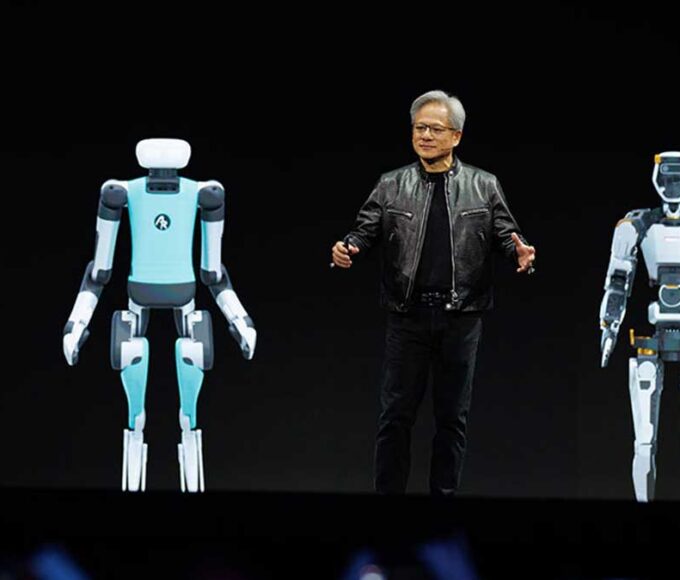- Home
- Billionaires
- Investing Newsletters
- 193CC 1000
- Article Layout 2
- Article Layout 3
- Article Layout 4
- Article Layout 5
- Article Layout 6
- Article Layout 7
- Article Layout 8
- Article Layout 9
- Article Layout 10
- Article Layout 11
- Article Layout 12
- Article Layout 13
- Article Layout 14
- Article Sidebar
- Post Format
- pages
- Archive Layouts
- Post Gallery
- Post Video Background
- Post Review
- Sponsored Post
- Leadership
- Business
- Money
- Small Business
- Innovation
- Shop
Recent Posts
AI Surge Boosts Demand for Memory and Storage Innovations

The rise of artificial intelligence (AI) is significantly boosting the need for advanced memory and storage solutions to handle data processing and retention. This demand encompasses both the extensive datasets used for training AI models and the outputs from these models used in inference engines. As AI technologies advance, various storage mediums—including DRAM, NAND flash, HDD, and even magnetic tape—are experiencing increased demand. Emerging non-volatile memory technologies are also gaining traction, particularly for endpoint AI inference applications.
This surge in demand for memory and storage solutions is influenced by several factors, including the ongoing expansion of AI applications and recent reductions in memory and storage technology manufacturing from the fall of 2023. These conditions have led to a rise in prices, especially for solid-state memory and storage products. A notable area of focus is high bandwidth memory (HBM) for AI applications. At the 2024 Computex event in Taiwan, Dinesh Bahal, General Manager of Micron’s Consumer and Components Group, highlighted that major industry players like Samsung, SK hynix, and Micron are intensifying their efforts to develop HBM products to meet the growing demand driven by AI.
Western Digital (WDC) has recently unveiled a range of new products designed to support AI workloads. The company presented an innovative visual representation of the data workflow for AI applications, termed the “six-stage AI Data Cycle” framework. This framework outlines the optimal storage infrastructure needed to maximize AI investments, enhance efficiency, and lower ownership costs for AI workflows.
The six-stage AI Data Cycle illustrates a continuous loop of data consumption and generation. It encompasses various types of data, including text, images, audio, and video content. The cycle includes stages such as data preparation and curation, AI model training, and the subsequent use of the trained model for inference. The results of these processes generate new data that must be stored to support ongoing AI inference operations.
Effectively processing and storing this data necessitates a diverse range of storage and memory products. High bandwidth memory (HBM) plays a critical role in AI training, while different types of NAND-based solid-state storage are essential for managing the data flows associated with HBM. This includes both high-performance NAND SSDs for intensive tasks and lower-performance, higher-capacity SSDs used as primary storage. Additionally, hard disk drives (HDDs) offer a cost-effective solution for secondary storage, while archival media can be used for long-term retention of data no longer needed for immediate training or results. This archival storage is particularly useful for data that might be revisited for future training or analysis to uncover new insights.
WDC’s recent announcements reflect the company’s commitment to addressing the evolving needs of AI storage and memory. Among the new products is the 32TB ePMR Enterprise HDD, which WDC is currently sampling with select customers. The Ultrastar DC HC690 UltraSMR (shingled magnetic recording) HDD represents the highest capacity HDD currently offered by WDC. For comparison, Seagate and Toshiba have also introduced 32TB HDDs utilizing heat-assisted magnetic recording (HAMR), though these do not feature shingling.
In addition to its HDD offerings, WDC is a prominent manufacturer of NAND flash and SSDs. The company announced several new SSD products, including high-performance PCIe Gen5 SSDs tailored for training and inference tasks, as well as high-capacity SSDs—up to 64TB—for rapid AI data lakes. The comprehensive WDC AI storage portfolio, showcased in the company’s latest visual presentation, underscores the breadth of solutions available to support various elements of AI workflows.
The growing demand for memory and storage solutions driven by AI applications highlights the need for robust and scalable products. As AI continues to evolve, the introduction of advanced storage and memory technologies will be crucial in supporting the preparation of data, model training, and the creation of effective inference engines. This ongoing development in storage and memory solutions reflects the broader trend of AI-driven innovation, shaping the future of data management and processing.
Recent Posts
Categories
- 193cc Digital Assets2
- 5G1
- Aerospace & Defense46
- AI37
- Arts3
- Banking & Insurance11
- Big Data3
- Billionaires426
- Boats & Planes1
- Business328
- Careers13
- Cars & Bikes76
- CEO Network1
- CFO Network17
- CHRO Network1
- CIO Network1
- Cloud10
- CMO Network18
- Commercial Real Estate7
- Consultant1
- Consumer Tech180
- CxO1
- Cybersecurity68
- Dining1
- Diversity, Equity & Inclusion4
- Education7
- Energy8
- Enterprise Tech29
- Events11
- Fintech1
- Food & Drink2
- Franchises1
- Freelance1
- Future Of Work2
- Games141
- GIG1
- Healthcare78
- Hollywood & Entertainment186
- Houses1
- Innovation42
- Investing2
- Investing Newsletters4
- Leadership65
- Lifestyle11
- Manufacturing1
- Markets20
- Media193
- Mobile phone1
- Money13
- Personal Finance2
- Policy567
- Real Estate1
- Research6
- Retail1
- Retirement1
- Small Business1
- SportsMoney33
- Style & Beauty1
- Success Income1
- Taxes2
- Travel10
- Uncategorized8
- Vices1
- Watches & Jewelry2
- world's billionaires395
Related Articles
Jensen Huang Sees Physical AI as the Next Big Leap
Nvidia CEO Jensen Huang believes that Physical AI will be the next...
By 193cc Agency CouncilAugust 10, 2024Could AI Be the Next iPhone Moment?
The term “iPhone moment” describes a technological breakthrough that pushes innovation into...
By 193cc Agency CouncilJuly 8, 2024Generative AI Set to Transform Finance Jobs
Generative AI is poised to revolutionize the financial services industry by automating...
By 193cc Agency CouncilJune 10, 2024Microsoft’s AI Monetization and Azure Growth Surge
Microsoft (MSFT) is significantly increasing its monetization of AI technologies across its...
By 193cc Agency CouncilJune 3, 2024















Leave a comment